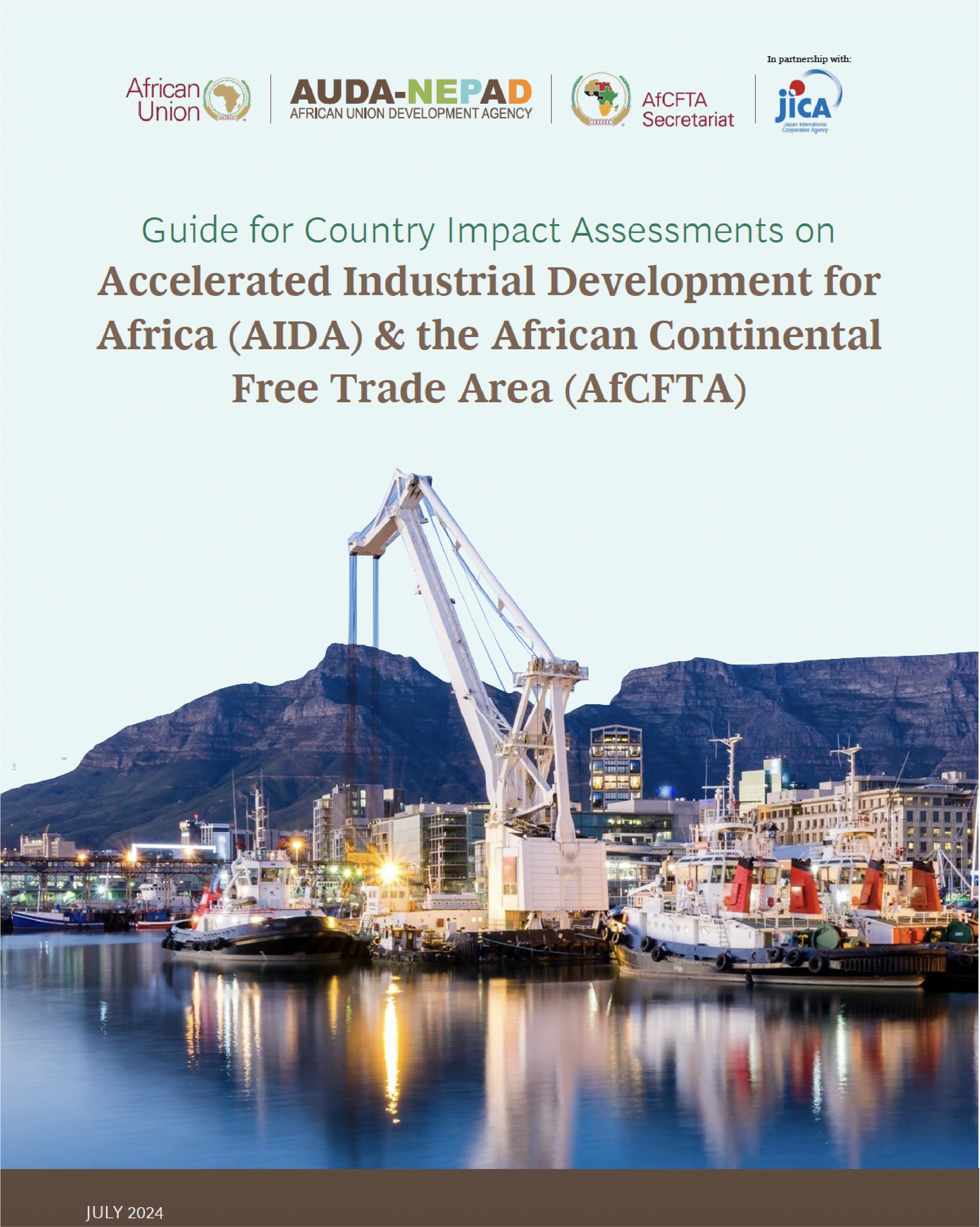In the quest for economic transformation, and in line with the African Union (AU) Agenda 2063, the AU has spearheaded initiatives to promote industrialisation and boost intra-African trade. AIDA, initiated in 2008, and the AfCFTA, launched in 2018, stand as cornerstones of this vision. Member States’ adoption of AIDA’s principles and ratification of the AfCFTA mark a steadfast commitment to this transformative path.
The AfCFTA is poised to deliver significant economic advantages, with forecasts suggesting the African economy will be nearly USD690 billion – or 10% larger – in 2043 than it would be on a path without the AfCFTA (at nearly USD 6.7 trillion)1. Yet, the fruition of these benefits is contingent upon member states’ preparedness to enact the AfCFTA measures and align with the principles of AIDA while effectively mitigating potential risks.
To aid this endeavour, the following “Guide for Country Impact Assessments on AIDA and the AfCFTA” has been developed, containing three comprehensive tools crafted to support policymakers:
- AfCFTA Potential Impact Assessment: Helps countries estimate the economic impact of the AfCFTA on specific products, including estimating the export potential of a product or assessing the impact of increased imports of certain products on consumer prices, domestic producers, trade diversion, and tariffs. Additionally, it identifies the social and environmental impacts and risks.
- AfCFTA Enabling Environment Monitoring Tool: Provides a Monitoring and Evaluation (M&E) logical framework to track progress towards achieving the AfCFTA’s Impact Goals such as increased intra-African trade across three key enabling factors (Trade Facilitation, Trade Infrastructure Development and Trade Finance).
- Industrialisation Progress Assessment: A survey template to assess industrial progress at continental, regional, and national levels. It helps governments and stakeholders assess awareness, integration, and support for industrial initiatives including AIDA, and evaluate sector-specific performance across seven enablers of industrialisation: access to raw materials and equipment, Infrastructure and energy development, finance and resource mobilisation, regulatory frameworks, human capital development, innovation, R&D and technology, and governance and economic stability.
This guide is rooted in practical application, designed to offer tangible insights, and foster actionable outcomes. It encapsulates the collective wisdom gleaned from extensive stakeholder consultations and leverages readily available materials, offering a pragmatic tool that can provide actionable insights to policymakers. By integrating lessons from existing AU initiatives and global standards, the guide adopts a holistic approach to interlink the AfCFTA and AIDA with other continental strategies. Ultimately, the guide acts as a navigational aid for member states, steering high-level actions to counter risks, bolster readiness, and advocate policy reforms. For instance, findings from the guide could indicate that a particular industrial sector is poised for export growth under the AfCFTA (based on the AfCFTA Potential Impact Assessment), but that certain infrastructure improvements are required to competitively serve increased regional demand (based on findings in the Industrialisation Progress Assessment). In this sense, the guide is designed to translate insights into strategic actions that unlock the latent potential of African trade and industrial growth.

